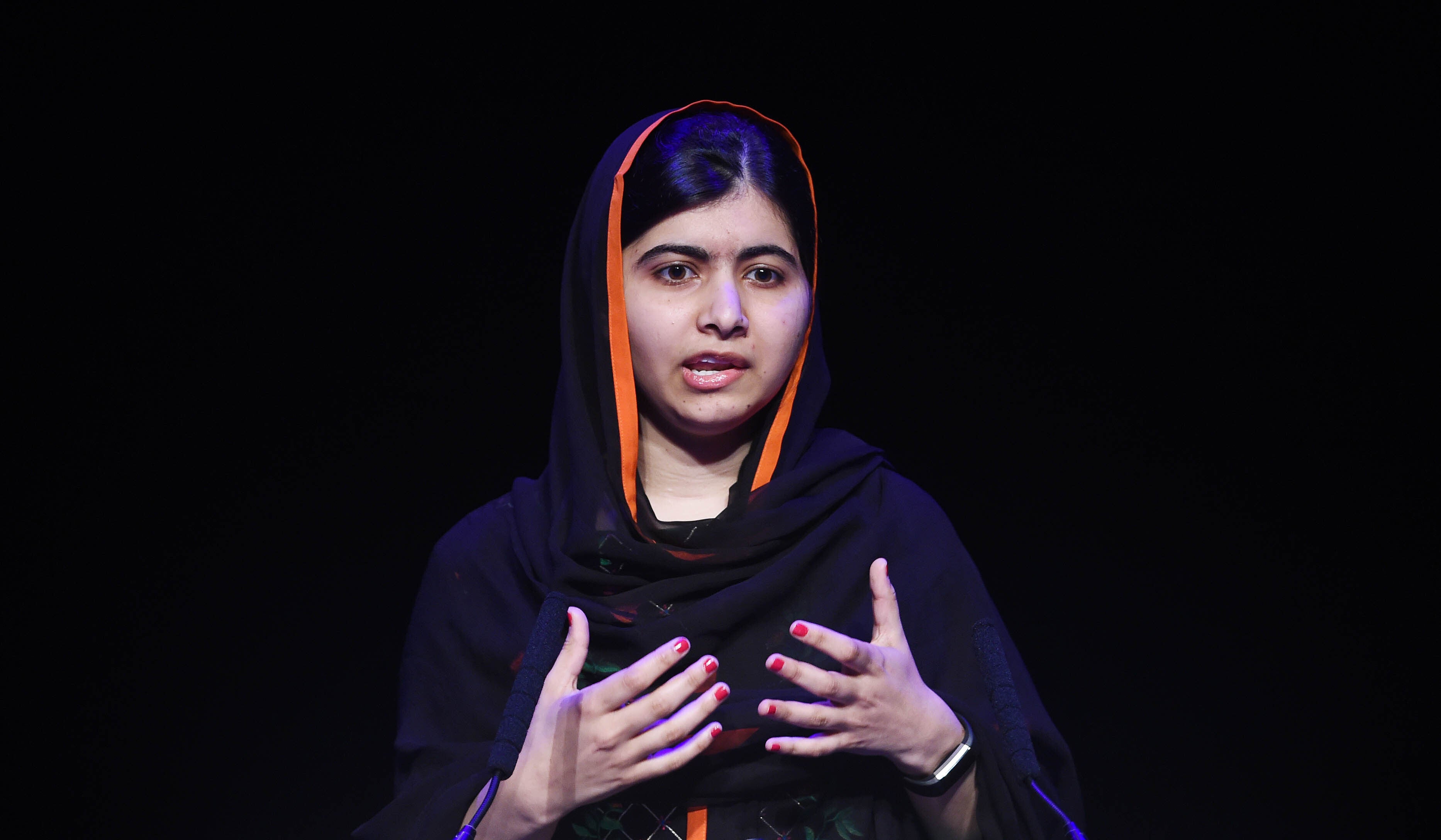Listen to marginalised women on front line of climate crisis – young activists
Malala Yousafzai, Vanessa Nakate and Leah Thomas spoke at a Cop26 fringe event.

World leaders must listen to marginalised women and people of colour who are on the front line of the climate crisis, young activists have said.
Nobel Peace Prize winner Malala Yousafzai and fellow campaigners Vanessa Nakate and Leah Thomas spoke at a New York Times fringe event near the Cop26 conference in Glasgow.
They said politicians and negotiators at the global gathering should stop using false praise as a way to pass the buck of solving global warming to the younger generation.
The consequences of climate change are not equal. Some of us are more vulnerable to the climate disasters than others
Ms Yousafzai, a Pakistani activist for education, said the issues she campaigns on are affected by environmental catastrophes including floods and drought.
She said “As the climate risk increases, we could see more and more girls dropping out of their schools. So climate, gender equality and girls’ education are not separate issues. They are all interlinked.”
Speaking by video link, she added: “The consequences of climate change are not equal. Some of us are more vulnerable to the climate disasters than others.
“Marginalised communities, especially women and girls, minorities, and indigenous communities are more vulnerable to climate disasters.
“Treating climate change and gender equality and girls’ education as separate issues is not doing justice to the cause of creating a fairer and better and cleaner world for all of us.
“I ask all our leaders from Biden to Boris to anyone who’s there at this table to take climate change seriously and to ensure that they take immediate actions to protect our planet, and they should not ignore the role of gender equality and girls’ education.”
Ms Nakate, a climate activist from Uganda, said she does not accept that praise for young campaigners from politicians is genuine.
She said: “I think almost every activist has been called inspiring, and almost every activist has been told that they’re going to change the world.
“But I think that when leaders do that, they are giving us the responsibility to save the world.
“They’re are making us responsible – if it doesn’t go well, then we failed to do it. So when leaders do that, usually I send back the responsibility to them because I may be able to go to the streets and strike or protest, but I am not in the negotiation rooms right now.
“So I don’t really buy when leaders praise young people for activism.”
She added that Cop26 should be listening to the voices of those most impacted by the climate crisis, including women and those on the “front line” of the crisis.
“We cannot have climate justice if more than half of the world’s population is left behind,” she said.
Ms Thomas, an American environmental activist, called for more recognition of the role of people of colour in the climate campaign.
She said: “The environmental justice crisis has been happening for a long time.
“And right now there’s a sense of urgency about a hypothetical future that could impact – quote unquote – all of us, but we need to consider who is being impacted now, and who has been impacted for a very long time.”
She said a “largely white” environmental movement in the 1970s “appropriated so many of the successful tactics from the civil rights leaders and excluded them”.
She added: “When we turn to 2021, it’s happening again. It’s happening when incredible activists like Vanessa are being cropped out of photographs, when our countries, and our neighbourhoods, are being cropped out of environmental conversation.
“So I want to say again, we have always been there and it’s time for us as environmentalists to look back at our history, learn our history.”
Bookmark popover
Removed from bookmarks